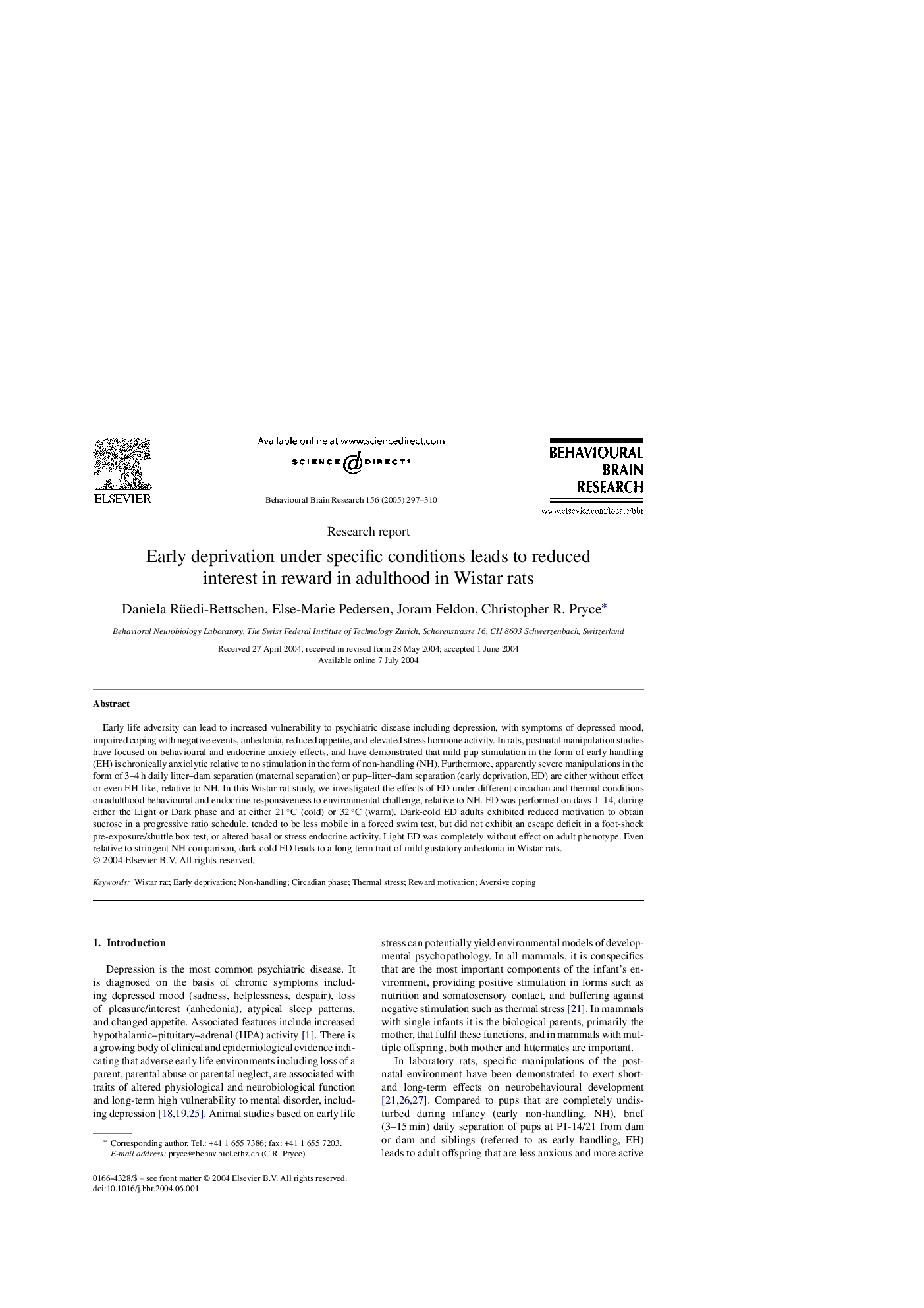| Article ID | Journal | Published Year | Pages | File Type |
|---|---|---|---|---|
| 9406631 | Behavioural Brain Research | 2005 | 14 Pages |
Abstract
Early life adversity can lead to increased vulnerability to psychiatric disease including depression, with symptoms of depressed mood, impaired coping with negative events, anhedonia, reduced appetite, and elevated stress hormone activity. In rats, postnatal manipulation studies have focused on behavioural and endocrine anxiety effects, and have demonstrated that mild pup stimulation in the form of early handling (EH) is chronically anxiolytic relative to no stimulation in the form of non-handling (NH). Furthermore, apparently severe manipulations in the form of 3-4 h daily litter-dam separation (maternal separation) or pup-litter-dam separation (early deprivation, ED) are either without effect or even EH-like, relative to NH. In this Wistar rat study, we investigated the effects of ED under different circadian and thermal conditions on adulthood behavioural and endocrine responsiveness to environmental challenge, relative to NH. ED was performed on days 1-14, during either the Light or Dark phase and at either 21 °C (cold) or 32 °C (warm). Dark-cold ED adults exhibited reduced motivation to obtain sucrose in a progressive ratio schedule, tended to be less mobile in a forced swim test, but did not exhibit an escape deficit in a foot-shock pre-exposure/shuttle box test, or altered basal or stress endocrine activity. Light ED was completely without effect on adult phenotype. Even relative to stringent NH comparison, dark-cold ED leads to a long-term trait of mild gustatory anhedonia in Wistar rats.
Related Topics
Life Sciences
Neuroscience
Behavioral Neuroscience
Authors
Daniela Rüedi-Bettschen, Else-Marie Pedersen, Joram Feldon, Christopher R. Pryce,
